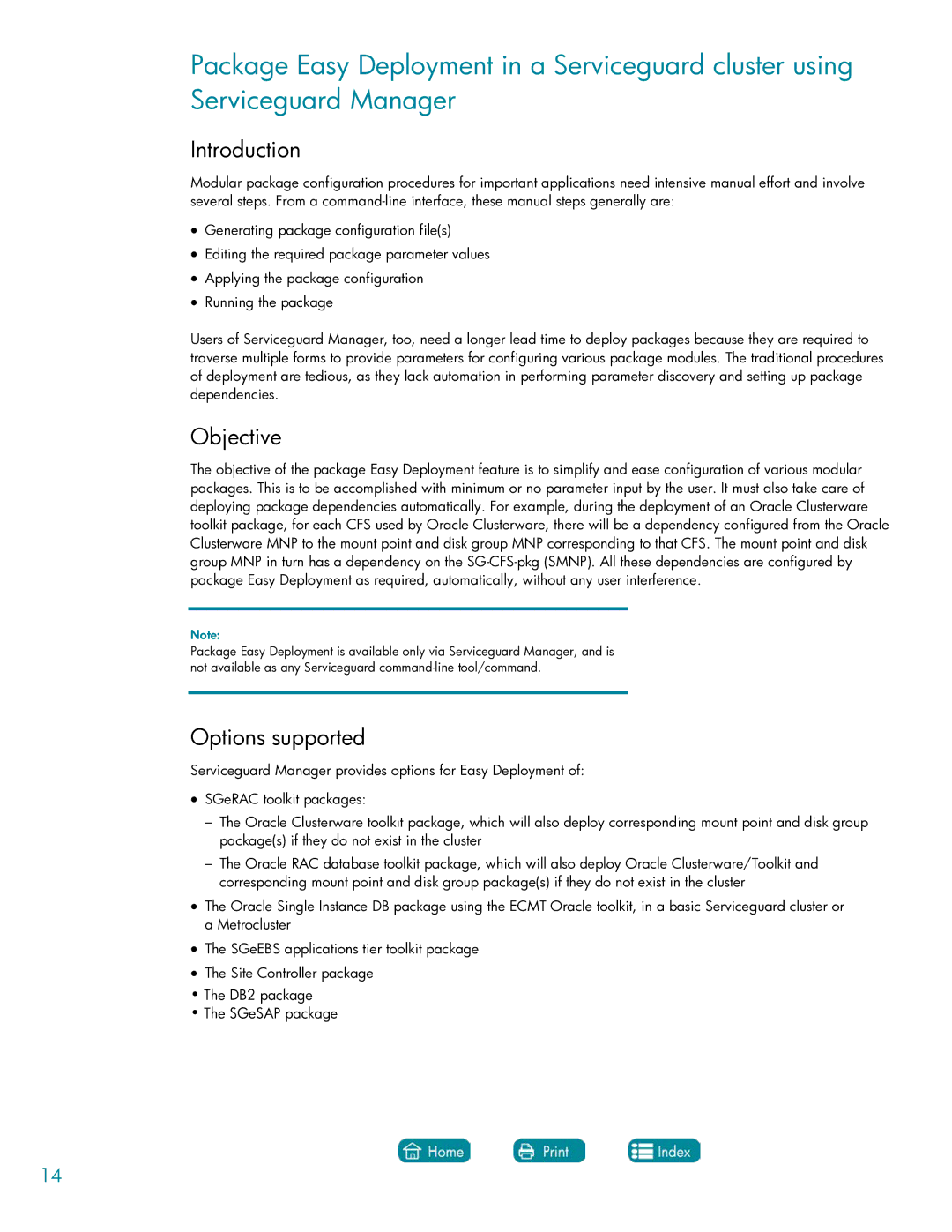
Package Easy Deployment in a Serviceguard cluster using Serviceguard Manager
Introduction
Modular package configuration procedures for important applications need intensive manual effort and involve several steps. From a
•Generating package configuration file(s)
•Editing the required package parameter values
•Applying the package configuration
•Running the package
Users of Serviceguard Manager, too, need a longer lead time to deploy packages because they are required to traverse multiple forms to provide parameters for configuring various package modules. The traditional procedures of deployment are tedious, as they lack automation in performing parameter discovery and setting up package dependencies.
Objective
The objective of the package Easy Deployment feature is to simplify and ease configuration of various modular packages. This is to be accomplished with minimum or no parameter input by the user. It must also take care of deploying package dependencies automatically. For example, during the deployment of an Oracle Clusterware toolkit package, for each CFS used by Oracle Clusterware, there will be a dependency configured from the Oracle Clusterware MNP to the mount point and disk group MNP corresponding to that CFS. The mount point and disk group MNP in turn has a dependency on the
Note:
Package Easy Deployment is available only via Serviceguard Manager, and is not available as any Serviceguard
Options supported
Serviceguard Manager provides options for Easy Deployment of:
•SGeRAC toolkit packages:
–The Oracle Clusterware toolkit package, which will also deploy corresponding mount point and disk group package(s) if they do not exist in the cluster
–The Oracle RAC database toolkit package, which will also deploy Oracle Clusterware/Toolkit and corresponding mount point and disk group package(s) if they do not exist in the cluster
•The Oracle Single Instance DB package using the ECMT Oracle toolkit, in a basic Serviceguard cluster or a Metrocluster
•The SGeEBS applications tier toolkit package
•The Site Controller package
•The DB2 package
•The SGeSAP package
14
